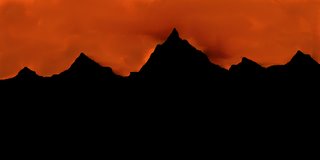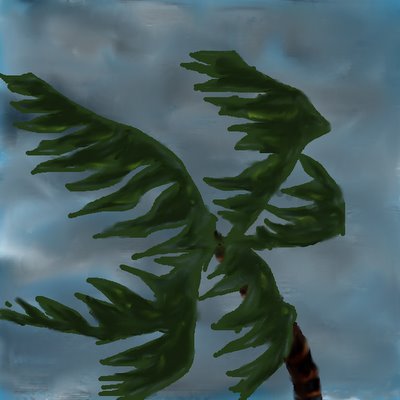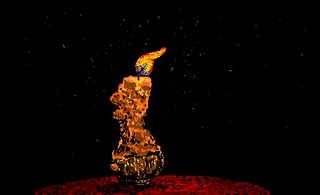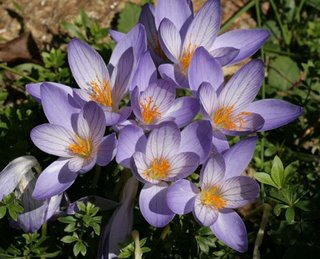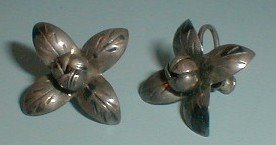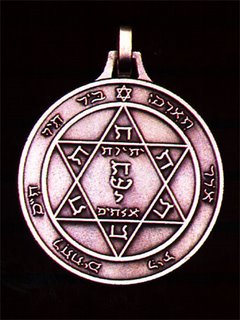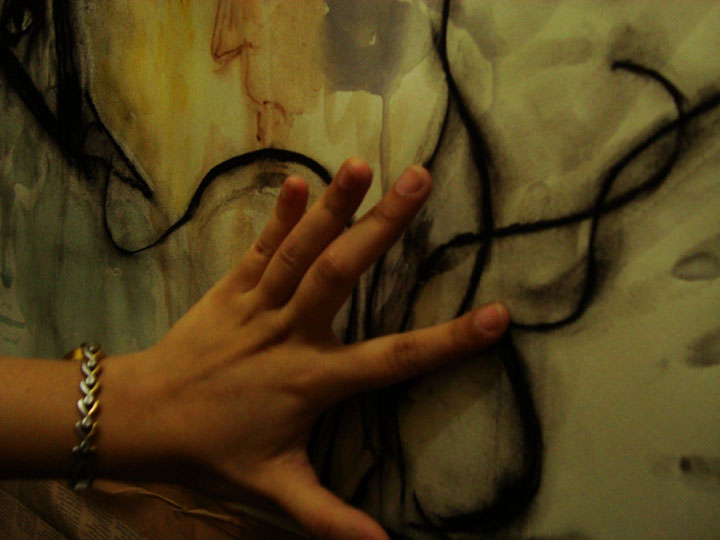PHASE I: The Pompous Revelation
Oct, ’96. The first poem I wrote. Accompanied by illustrations, of course.
Our World.
Beautiful flowers all red and blue
Butterflies fly here and there too
In the little world that is held upon
The hands of our own God.
Happiness and sadness in the world there is
So much to write upon
Books are being sent all over the world
In peace and in happiness.
Meanwhile the angry wind does sound
“Why sunshine throughout the town?”
Storms and rain sent over the world
Causes damage and crops grow.
Happiness is when books are read
And when written down.
Teaching and learning with our friends
We grow to learn God.
Referring to lines 8 and 11: ??????????
PHASE II : The Pompous Rhyme Freak with the Age Old Subjects :
Oct ’96.
MY PET DOG(Also known as: A Study in Multiple Adjectives)
My pet dog is very sweet.
Her colour is black and she eats meat.
She has a big white rubber bone
She plays with it, all alone.
She has a long, black thin tail
Her eyes are black and blue and pale.
She bathes every week, once a day,
And it’s mostly a holiday.
Her name is Tupsy, she’s a dear.
Her skin is very soft and clear!
Referring, again, to line 7: ????????
PHASE II: The Pompous Ass Yields.
June, ’98.
The Visitor.
Wearing a black suit and hat,
Came in a man holding a cat.
His face was hidden by the shadow of the cap,
The cat kept purring in his lap.
He smiled a little, by his dark mouth.
When the cat started to hiss, he did shout!
When the cat in his lap slowly calmed down,
He sat on a carpet on the ground.
The cat jumped down and sat down too.
The man took off his cap and said, “how do you do?”
Except a slight but mysterious change of a hat into a cap, the pompous ass seems to have given way.
August 2000
Wait.
Exams are almost over
Just one more day to go.
My books are in the cupboard
All standing in a row.
I won’t be needing them for a long time any more.
I can play throughout the day or go to the toy store!
The last day I have history
My favourite of the lot.
So I want to give it
Everything I’ve got.
Study, study, study.
Just another day.
From tomorrow onwards I can have my own way!
PHASE III: The Pompous Ass Returns, ‘Stronger and more powerful than ever before’. Possibly the most embarrassing phase in history.
Dec 2001.
Life
Love, joy, pleasure
A struggle for perfection.
Grief, strife, distress
A blend of creation and destruction.
Thoughts, words, affection
A description of life
An unbreakable bond with
Parents, children, husband, wife
An immature bud
Pink with a touch of love
Wet with he dews of sadness
Free like the songs of the dove.
Gazing up at the world
At the vast blue sky.
Comparing its minor self
To an endless Universe with a sigh.
Such seeming greatness
In just one out of millions
Such a number of feelings
And thoughts in just one cranium.
So powerful, so mighty –
And undefeatable
And yet so frail
And highly destructible.
Just a breath of the wind
Or a few teardrops of rain
Or the simple trembling of the earth
Can end all thoughts and pain.
Just a minor change of season.
Or a heat wave so small
Can put an end to heartbeats,
Feelings, thoughts, movement, all.
Referring to lines 12, 20, 24: heh. heh.
March ‘02
My Road – The Peak of the Reign of the Pompous Ass.
Somewhere across the horizon I shall find what I seek
Somewhere along my journey my fate I shall meet
No stars shall shine in the heavens to guide me
No maps on my road shall I see
No path will be there for me to follow
‘Ere along with the rising of the sun dawns the ‘morrow.
For then I hall look back upon the road of my past
And draw from it lessons which I may put to use till the last
I shall plunge onwards into dark shadows and fearful mists
If I am to find eternal bliss.
I must struggle onwards along my self-made road
On a path where perhaps none ever strode
And achieve a goal none ever set eyes upon.
But before that I must endure many-a-dawn.
And accept guidance and aid from those worth trust.
And suffer pain and sorrow if I must.
And if my will be too hard to bend
I shall find victory awaiting me at my road’s very end.
Dec ‘02
A Stop.
A distant wild tune came floating to my ears,
It didn’t’ lift my spirit it didn’t let flow tears
But, somewhere deep in my memory,
It stirred some long-forgotten story.
Something about it reminded me
Of something I’d experienced and yet failed to see.
In my mind the past I had left behind
Floated endlessly like the countless clouds that ornamented the evening sky.
The breezes of dusk to which bent the grass
In respect; and the pool with clear waters of rippled glass
Completed the evening’s indefinable glories
And struggled to awaken my sleeping memories.
I remembered a hand that held mine strong
When I couldn’t sleep and a comforting song –
The tune that the far-away shepherd played
On his self-made flute and slowly it began to fade
As the sheep turned, homeward-bound
And towards a sailor’s sea I turned myself around.
PHASE IV: Trial and Error.
Dec. ’04.
Deer in the Snow. (or, a little speed.)
Cold was the air
The treetops bare
The sun all lost
In the imminent frost.
The frozen ice
Seemed oddly nice.
On the white-blue lakes
Beneath the flakes.
The snow was soft
The cool wind oft
Bristling through
The leaves so few
Of evergreen trees
In twos and threes
That bravely stood
In the faraway wood.
The timid deer
Twitched both his ears
And then his nose
In his raised-hoof pose.
Peeping forth
In the wind from the north.
To see in fear
If the coast was clear.
He stepped front
Without a grunt
Back again
All in vain.
The squirrel passed
On his last journey to his horde
Of nuts all stored.
Once again
The silence was plain
And out he came
In the same
Cautious way.
So as not to say
“Farewell adieu – ”
“I told you so”
Would be the words
Of answer from the world.
He stood aloof
One raised hoof.
On the white, white snow
His fur aglow,
And then behind,
All in a line,
Came his family,
In twos and threes
Of does and fawns
On the rolling white lawns.
Relatives and friends
From the front to the end.
The mountain stream
A picture from a dream
In the bed of rock
Was out of stock
Of a gushing flow
Yet a trickle slow
Had failed to freeze
In the morning breeze.
Melting snow.
Coming down below
From a high white peak
Though the sun was weak.
One by one
The battle won
They bent to drink
And then to sink
Their little snouts
In the miniature spout
Heads low until
They’d had their fill
And then suddenly,
No time for the glee,
Of quenched thirst,
Safety first,
About turn
Before forest fires can burn
They were gone.
From the deer to the fawns.
And the silent flakes
Fell on the lakes.
And in the snow
Several hoof-prints showed
Till they too were lost
In the imminent frost.
And all was still.
And all was still.
It was a little difficult ending the rhyming scheme and hence the meaningless apparent Robert Frost influence at the end.
Feb ’05.
An Ignorant Attempt at Freeverse.
There are times
When I can’t rhyme
A word with another
It’s a bother
But it’s life
A strife
Between what can be
And what can’t
What you want
What you don’t
Or simply won’t
Accept
Without regret
It’s always there
You never know where
What you’re searching for
Neither true nor
False
Without cause
Evil and good
Shouldn’t and should
Happy sad
Decent and bad
Which is which?
What if you switch
From one to the other
Or even take it further
Or if you don’t know
If you can’t go
The way you want
‘Cause you don’t know which that way is.
Eternal bliss
Depths of Hell
Oh swell
Is there life in death
One last breath
In the light of dawn
And then its gone
In day
Far away
In a land with no land
Where you can’t stand
But only dream
And scream
Out loud
Draped in a shroud
Hidden behind
The depths of your mind
What do you find
Feelings of what kind
When it’ all unveiled
Truth is sealed
Locked in a trunk
Silent as a monk.
Never fear
A hundred tears
Only why
You can’t cry.
Is there pain
In excessive gain
Or just the negation
Of realization.
One blank stare
Without care
Existance
An instant
Of thought
What not.
It’s there
And not there
Again
And again.
In a circle
A whirlpool
Of emotion.
No notion
Of why
A sigh
Confusion
A nuisance.
However
Forever
Eternity
Infinity.
On and on and on.
A tuneless endless song.
That’s all.
You’re small.
That’s all.
March ’05.
Giving up on rhyme.
I sat down with a pen in my hand.
Thinking what to write.
The pages were empty
The lines seemed to call
For the blue of the ink of my pen.
And then,
I put my pen down on the paper.
They seemed to go together.
Blue and black and white.
And the words.
Everytime I wrote a line
I created a world.
Everytime I moved my pen
Something happened.
Leading my characters round and round and round.
I could do what I wanted
Whatever I wanted.
They were helpless.
They had to follow.
I was the rider
And they the horses.
Who couldn’t throw me off
Nor lead me astray.
I was the artist
And they the canvas
Mine to create
Mine to do what I liked.
I was the little girl
Playing with her dolls.
“Mute insensate things.”
I was the architect
And they the rubble
Out of which I built my creation
Placing them in what way I chose.
They were people.
I was God.
PHASE V: The God Poems. And Reflection.
March ’05.
God poem 1.
April ’05.
God poem 2.
God Poem 3.
Somewhat.
I am a character
In someone’s dream.
Just a character
That doesn’t matter.
That someone is dreaming
A dream with himself in it.
Therefore that someone
Must be someone
Somewhere
Around me.
That someone is making
The world go round
Without realizing it.
That someone is turning our lives up and down
Unconsciously.
That someone is God.
In our world.
He is God
Without knowing
He is God.
( I could be that someone too!)
God Poem 4.
God,
The sands of time are slipping through my fingers like water trickling through a sieve.
I wave my hand,
Trying to grasp the coarse grains,
But in vain.
How do you live a moment to the fullest
When that moment passes like dust in the wind?
How do you experience reality when reality doesn’t pause for you?
Stars, blinking, shimmering, in the deep blue sea of the sky.
I won’t wait.
I won’t wait for time to pause.
I won’t wait for eternity to shrivel up like a dry rose.
I won’t wait for the candle flame to flicker and die in the passing storm.
But I’ll wait.
Wait a while.
Wait and take
A deep breath.
Breathe in the hurrying breeze.
Take in the fleeing clouds.
The departing day.
The setting sun
And the fading stars.
Take in the change.
And the pace.
This race
Of life.
PHASE V: Using Melancholy
Dec ’05.
Search.
They told me God lives in the clouds.
Behind the rainbow and the rain.
Behind the mist and the smoke…
So I built a ship from prayers
And a sail from a hundred wishes
And I set sail for the skies.
But when I reached it He wasn’t there.
They told me god lives up in space
Beyond the blue and beyond the beauty
Beyond the warmth and the life…
So I built a ship from whispers
And a sail from a hundred sighs
And I set sail for the void
But when I reached it He wasn’t there.
They told me God lives out there
Behind the sun and behind the stars
Behind the world that we’ve heard of.
So I built a ship from pleadings
And a sail from a hundred chants
And I set sail for the beyond.
But when I reached it He wasn’t there.
They told me God lives at the edge.
Beyond the void and behind the rift.
Behind all that we can imagine.
So I built a ship from cries
And a sail from a hundred tears
And I set sail for the end.
But when I reached it He wasn’t there.
They told me God lives in the beyond.
Somewhere out beyond space and time.
Somewhere out behind thought and dreams.
So I built a ship from my soul
And a sail from my faith.
And I set sail for eternity.
And I’m still searching…
Jan ’06
Letting go.
I tried…
Again and again I tried to let go.
But his had was clutched in mine
At the edge of nothingness.
His eyes stared up pleadingly at me.
Sightless eyes.
Because he was dead.
And I wasn’t hanging on to him at all
But what used to be him.
And yet…
I couldn’t let go.
Not after all we’d gone through together
After ages of petty emotions
That tossed and tore
Wild horses in the wind
Around me…
Like ghosts that wouldn’t let go.
Because I couldn’t.
And I couldn’t accept that I was hanging on to nothing
Except those ghosts
After all.
God Poem 5
God,
Have you ever turned away from a sunset…
And looked at the clouded east
Like tearing away from gold
And turning to the grey
Because it gave you more
Once upon a time..?
The world is not about the grey
The old and the dull.
And they’re forgotten.
Lost.
Erased.
It’s like the wind sighing over a withered branch
Or sands blowing through the desert.
Christmas trees lying in the gutter the week after Christmas.
Used.
Wet.
Cold.
Alone.
Should I wait for the rain?
And forget the summer?
The red-gold bits of dried paint that peeled off my wall in the sun?
The shafts of light through the iron shutters, rusted in the winter dew…
The piercing blue behind the smoke and behind the scarlet curtains that spoke of the hours.
It’s all gone.
Like a breath of the wind that’s losing its echo.
Little by little
To the waves of novelty.
And I’m fighting a losing battle trying to ward off time…
But how can you ward off something that keeps you going?
It’s like being lost in the desert
And wiping away your prints in the sand
To spite the misshapen steps that led you there.
And everybody says that I’m not alone.
But they haven’t heard
The frozen silence that’s inside me.
The soundless din
That rises above the city speaking
Through its cars and its clouds
And its stray crows
That survive like a lone pair of electrons in empty nothingness.
I am alone.
Alone and stranded
Stranded in the darkness
Only that darkness is stranded in light
A light I cannot reach.
And everybody says that I’m not trying.
But they haven’t known
The impenetrability.
The pain.
The despair.
When I’m stretching out my hands for nothing – to nothing.
And walking, blinded, in circles, till I’m mad…
I have tried.
But I’m tired
And scared
Of being pushed down again.
Of being forgotten again.
And everybody says they’ll always be there.
So where are they?
All I can see are miles and miles of dust blowing away in the wind.
And I’m stretching out my hand through the bars
But no one’s grasping it.
They are there.
But outside the iron bars.
Not knowing what its like to be inside them.
Not caring what its like to be inside them.
I wish they’d turn away from the sunset
And look at the clouded east
And understand.
Just once.
That’d be enough to set me free.
Feb ’06.
I heard it again –
The whispers from what was
Seeping into my thought
Pleading for remembrance
And I shut my eyes to them
But they were already inside.
Every tick of the old clock
On the wall painted anew.
Painted yellow for a beginning
But paint peels off fast
And it’s another pathetic attempt
To ignore.
And sweeping new layers of dust off the floor
Waiting till it gets renewed
But the layer’s never gone
Off the corners – it won’t go
Piling up every time I wipe it away
Like the memories.
I tried to scrub off the handprints on the door
Again and again they cleared
And returned – there will be no end.
And every time I tried – I left a new set
Which had to be cleared but came back
Inevitably.
I shut my windows –
Latched and bolted them to the winds
Which howled and rattled the door on its rusted hinges
But my shields are made of glass
And I keep them at bay – but they taunt me
Continuously, from behind the panes.
Maybe I’m trying too hard.
Maybe I should throw open the windows
Maybe I should let the handprints be and the dust grow
Maybe I should leave the walls to their grey.
But I’m just alone – and the whispers haunt me.
Like cricket song in dark silence.
I can’t.
PHASE VI: Experiments…..


